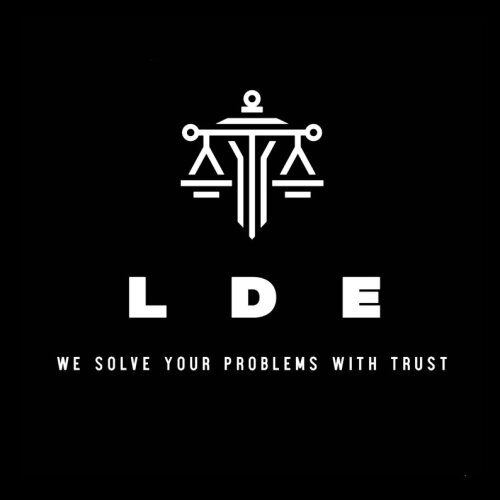Best Citizenship Lawyers in Islamabad
Share your needs with us, get contacted by law firms.
Free. Takes 2 min.
List of the best lawyers in Islamabad, Pakistan
About Citizenship Law in Islamabad, Pakistan:
Citizenship in Islamabad, Pakistan is governed by the Citizenship Act of 1951, which outlines the rules and regulations for acquiring, retaining, and renouncing citizenship. Islamabad, being the capital city of Pakistan, follows the same citizenship laws as the rest of the country. It is important to understand these laws and requirements to navigate the citizenship process effectively.
Why You May Need a Lawyer:
Obtaining citizenship or dealing with citizenship-related matters can be complex and may require legal expertise. Here are a few common situations where you may need a lawyer's assistance:
- Applying for citizenship through naturalization
- Challenging a denial or revocation of citizenship
- Dealing with complex citizenship cases involving dual citizenship
- Seeking legal advice on citizenship rights and obligations
- Navigating the legal requirements for citizenship by descent or marriage
Local Laws Overview:
When it comes to citizenship in Islamabad, Pakistan, it is important to consider the following key aspects of local laws:
- Pakistan allows dual citizenship, but it is essential to understand the regulations and restrictions associated with it.
- Citizenship by descent is possible if one or both parents are Pakistani citizens.
- Citizenship by marriage is granted under certain conditions, including a minimum duration of marriage and fulfilling requirements regarding language and culture.
- The acquisition of citizenship through naturalization involves a lengthy process, including residency requirements.
- Renunciation of citizenship requires following specific procedures and legal formalities.
Frequently Asked Questions:
1. How can I acquire Pakistani citizenship through naturalization?
To acquire Pakistani citizenship through naturalization, you must meet specific criteria, including residing in Pakistan for a minimum period of time, being of good character, having sufficient knowledge of the Urdu language, and renouncing any other citizenship you hold. Consult a lawyer to understand the detailed requirements and procedures.
2. Can I hold dual citizenship in Pakistan?
Yes, Pakistan allows dual citizenship. However, it is essential to understand the restrictions and requirements associated with dual citizenship, as they may vary depending on the countries involved. Consulting a lawyer is advisable to fully comprehend the implications and obligations.
3. What are the conditions for acquiring Pakistani citizenship by marriage?
To acquire Pakistani citizenship by marriage, you must fulfill certain conditions, including being married for a specified duration, having a Pakistani spouse, demonstrating knowledge of the Urdu language, and showing an understanding of Pakistani culture and way of life.
4. Can I obtain Pakistani citizenship if my parents are Pakistani citizens?
Yes, if either or both of your parents are Pakistani citizens, you are eligible for Pakistani citizenship by descent. However, it is important to meet the requirements stated in the Citizenship Act of 1951 and follow the necessary legal procedures.
5. What is the process for renouncing Pakistani citizenship?
If you wish to renounce your Pakistani citizenship, you need to follow specific procedures outlined by the relevant authorities. This involves completing an application, providing required documents, and undergoing an interview. It is advisable to consult a lawyer to guide you through this process.
Additional Resources:
- Ministry of Interior, Pakistan: http://www.interior.gov.pk
- Embassy of Pakistan, Islamabad: http://www.mofa.gov.pk/islamabad
- Pakistan Bar Council: http://www.pakistanbarcouncil.org
Next Steps:
If you require legal assistance in matters related to citizenship in Islamabad, Pakistan, follow these steps:
- Research and shortlist lawyers specializing in citizenship law.
- Arrange consultations with the selected lawyers to discuss your specific situation.
- During the consultation, ask about their experience, fees, and approach to your case.
- Select the lawyer who best meets your needs and proceed with engaging their services.
- Work closely with your chosen lawyer, provide them with all the necessary information, and follow their guidance throughout the process.
Lawzana helps you find the best lawyers and law firms in Islamabad through a curated and pre-screened list of qualified legal professionals. Our platform offers rankings and detailed profiles of attorneys and law firms, allowing you to compare based on practice areas, including Citizenship, experience, and client feedback.
Each profile includes a description of the firm's areas of practice, client reviews, team members and partners, year of establishment, spoken languages, office locations, contact information, social media presence, and any published articles or resources. Most firms on our platform speak English and are experienced in both local and international legal matters.
Get a quote from top-rated law firms in Islamabad, Pakistan — quickly, securely, and without unnecessary hassle.
Disclaimer:
The information provided on this page is for general informational purposes only and does not constitute legal advice. While we strive to ensure the accuracy and relevance of the content, legal information may change over time, and interpretations of the law can vary. You should always consult with a qualified legal professional for advice specific to your situation.
We disclaim all liability for actions taken or not taken based on the content of this page. If you believe any information is incorrect or outdated, please contact us, and we will review and update it where appropriate.















